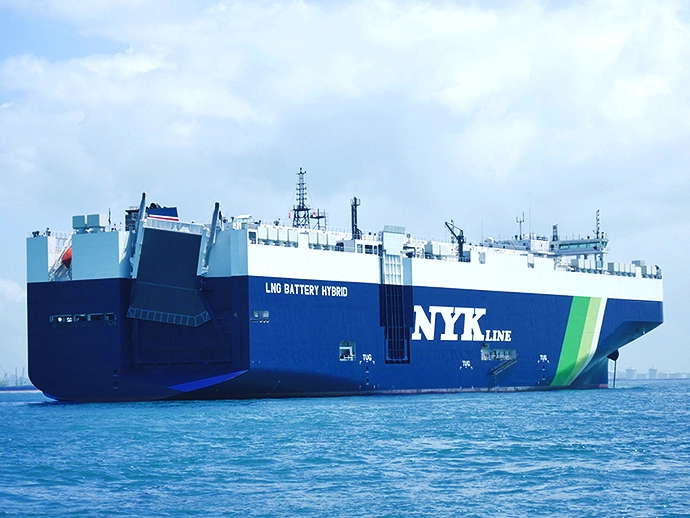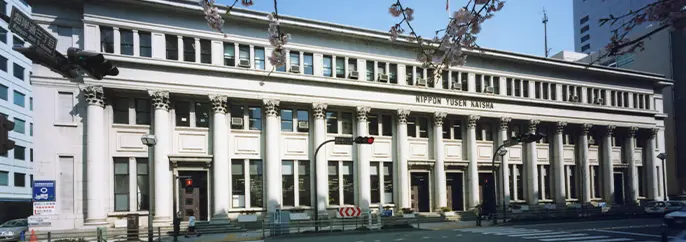No Growth without Safety Commitment to Safety Rooted in Our Corporate Culture
Released : Jan. 22, 2025
Updated : Feb. 28, 2025

The First Priority of ESG Management
Safety is the most important consideration, regardless of whether we are operating NYK-owned or chartered ships. When our current chairman, Hitoshi Nagasawa, was president, he always said that safety is the first priority of ESG management. His aim was to instill an ESG-focused mindset among Group employees. The Group’s current president, Takaya Soga, also sees safety as paramount. The president leads the Group’s safety management system. We respond to emergencies by immediately setting up an emergency task force. Headed by the president, the task force is located at the Crisis Management Center on the 10th floor of head office.
Members of the Marine Group’s Safety and Security Management Team manage the safety of NYK Group ships. The team has six members, ranging from experienced ship captains to onshore clerical personnel. In addition, safety managers are assigned to business divisions and major ship management companies. Working closely with these safety managers, the team conducts safety and crisis management for ships operating around the world. The Safety and Security Management Team responds to terrorism and piracy as well as to incidents involving refugees, earthquakes, tsunamis, typhoons, and missile launches. In recent years, the team was also tasked with taking measures in response to the COVID-19 pandemic. Team members typically have to work hard under pressure. Team leader Toshimitsu Kamiya stresses the team’s commitment.
“The entire Group, including domestic and overseas Group companies, works as one to ensure safety. The management team and other personnel promptly make investment decisions on safety. We approach this work with a strong conviction to fulfill our mission of protecting crew members’ lives.”
The Group’s high level of safety awareness is also clear from team member Masaki Morita’s comments.
“When economics and safety are weighed in the balance, we have a corporate culture that always give priority to safety. If there is an operational risk, we will consider countermeasures. However, if a safety-related risk remains, we will choose a detour. We never compromise on safety.”
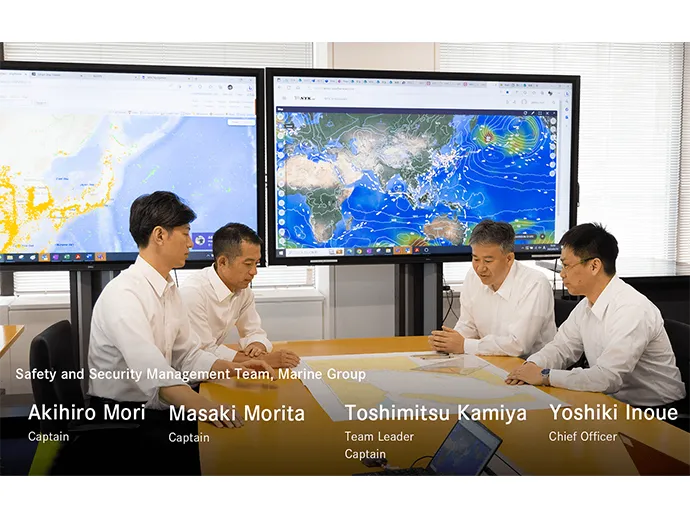
Safety Mindset Inherited from Our Predecessors
The NYK Group’s history is one of safety initiatives. For example, the Hikawa Maru* was completed in 1930 as a cargo and passenger ship for NYK’s Seattle route. As a flooding countermeasure, it was equipped with 10 watertight compartments with sliding watertight doors. This made the ship extremely safe, even by today’s standards. Needless to say, the ship was innovative and state-of-the-art at the time. The Safety and Security Management Team has inherited documents related to maritime accidents and safety measures. Some of these documents were created 90 years ago. The safety and environmental measures promotion system headed by the president was established in 1992. Launched in 2001, the Safety and Environmental Management Committee is chaired by the president and continues its activities to this day. We also provide an opportunity every year for the president and frontline captains and chief engineers to exchange opinions directly. Such meetings were held in September 2022, with a total of approximately 170 participants. Among the participants were the president and 21 other members of the management team, employees engaged in sales and operations on shore, and offshore employees who were either on board or on leave.
The management team listens carefully to even the most minor requests from frontline personnel and uses the feedback to improve onboard conditions. In many cases, opinions and requests collected by the Safety and Security Management Team are conveyed directly to the president. A culture of focusing on frontline operations—passed down from generation to generation since the Company’s founding—is the basis of the NYK Group’s excellent safety record in international maritime shipping. Yoshiki Inoue, who joined the Safety and Security Management Team in 2021, describes its operations.
“I was surprised and impressed by how quickly onboard issues recognized by the Safety and Security Management Team are regarded as the Company’s issues.”
However, safety awareness tends to fade when operations continue normally. Team member Akihiro Mori emphasizes the importance of a steady commitment to safety.
“Seeing the results of safety is difficult. That is why it is so important to annually implement various initiatives, such as meetings between the president and frontline personnel. We work with a commitment to continuing to speak up, even if coworkers may find our statements repetitive.”
In addition, he points out a task in relation to safety in frontline operations.
“Nowadays, we have safety management rules in place, but there are certain vocational skills that only crew members understand and which are difficult to write down. I learned the importance of reading the stars, feeling the wind, and using all five senses when operating a ship. The true value of frontline personnel lies in things that cannot be seen. I think the task is how to pass on these types of skills and intuitive understanding to future generations so that safety management regulations do not make frontline operations rigid.” Morita has a similar opinion.
“Whenever an accident occurs, we review our operations to prevent the same type of accident from happening again. Adding new operations and increasing the workload are meaningless if the increased burden on frontline operations leads to a different kind of accident. Countermeasures are important, of course, but I think making the right choices is just as important.”
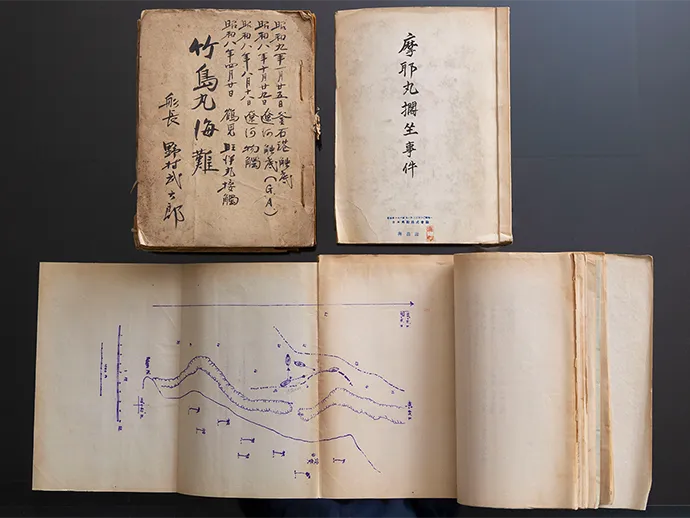
Making Safety Integral through a Collaborative Spirit
The Safety and Security Management Team aims to achieve “zero” serious accidents and “zero” downtime. A serious accident is defined as an accident that results in a fatality or that has a major social impact. On July 2, 1997, the crude oil tanker Diamond Grace spilled oil at Naka-no-Se in Tokyo Bay. Based on the lessons learned from this accident, the NYK Group conducts an annual campaign for two months beginning from July 1 so that all employees can reaffirm the importance of safe ship operations. In 2022, 401 executives and employees from Japan and overseas visited 241 ships (including remote visits enabled through the use of online tools) and conducted safety promotion activities aimed at achieving zero serious accidents. Moreover, during this campaign period, a response drill was conducted for a scenario involving a serious accident in which an NYK-owned ship had collided with another ship. This drill was a practical exercise conducted in cooperation with the Ministry of Land, Infrastructure, Transport and Tourism, the Japan Coast Guard Headquarters, and other external parties.
Inoue describes the behind-the-scenes activities.
“Training scenarios are developed from scratch by frontline personnel (navigation officers and engineers). The scenarios not only include internal reporting lines but also feature details on external reporting, such as which individuals in which ministries and agencies should be contacted to ensure that countermeasures proceed smoothly. I would like people to know that we are a corporate group that goes to such lengths to make safety integral.”
Meanwhile, downtime refers to the time that operations are suspended due to accidents or problems. Our target is for downtime to be no more than 10 hours per ship. In 2022, downtime was 15.6 hours per ship. Although the target has not been achieved in any of the past 30 years, downtime is steadily improving, even though the number of operating ships continues to increase. All team members are highly motivated to achieve the target.
Safety measures call for very steady ongoing efforts. However, Kamiya, the team leader, is concentrating even more on creating mechanisms to foster safety awareness.
“In addition to continuing various initiatives, we will resume face-to-face interactions with frontline personnel, which have been conducted online for the past three years. We will also further strengthen our ties with external organizations, such as the Ministry of Land, Infrastructure, Transport and Tourism, the Japan Coast Guard, and the Japan Shipowners’ Association. Furthermore, we intend to focus on the distribution of safety-related information.”
Even if people are not normally aware of the importance of safety, once an accident occurs, a company’s reputation can be severely damaged. Needless to say, having a strong awareness of and thorough approach to safety is very important in terms of competitive strategy.
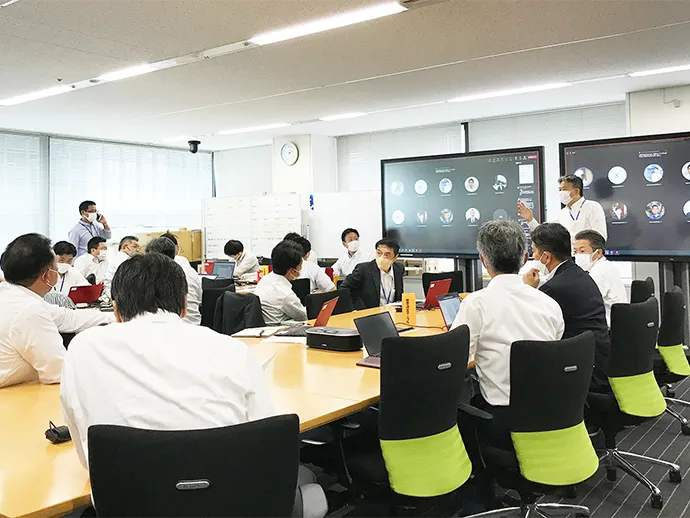
Interview April 18, 2023
* Hikawa Maru
Built in 1930 by Yokohama Dock Company Ltd. (now Mitsubishi Heavy Industries, Ltd.), the Hikawa Maru operated as a hospital ship during the Pacific War. After the war, she returned to service as a passenger ship and operated until 1960.
(Reference: History of Hikawa Maru, NYK Hikawamaru website)


